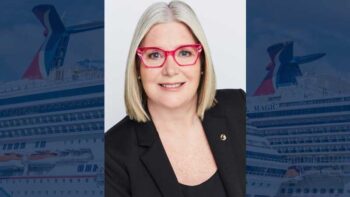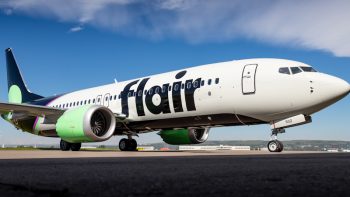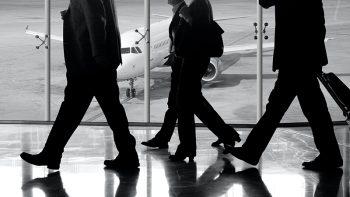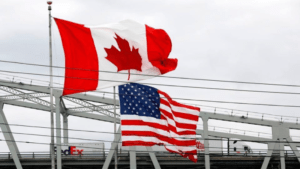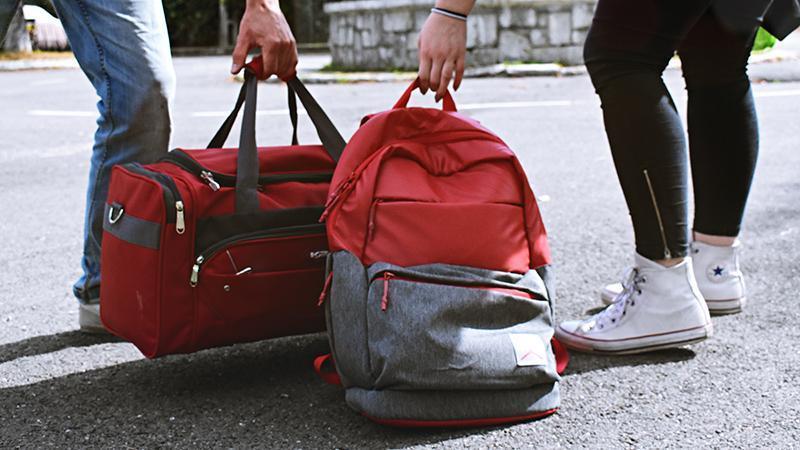
Canadian airlines are being hauled in front of the principal after Air Canada announced changes to its basic fare policy.
Transport Minister Anita Anand is summoning Canadian airline CEO’s to talk about “excess fees” being charged to Canadian air pax.
“I am extremely concerned,” Anand said on her Twitter/X feed. “Canadians work hard and save up to travel. They rightly expect excellent service, not extra fees.”
“Let's just say I'm not very happy today with what I've heard from Air Canada,” Anand said in an interview with CTV News. “I think they need to take a look at the persons that they are targeting with these excess fees. It is not acceptable.”
Anand said she plans to meet with airline CEO’s in the middle of December.
The minister noted the Trudeau government acquired a six per cent stake in Air Canada in exchange for emergency funding during the COVID-19 pandemic. The minister said she’s “examining the particular legal relationship right now” and will have more to say “in the days ahead.”
Air Canada told CTV the new charges are “not new in the Canadian industry and is merely our competitive response.” AC officials also said they “will be pleased to explain this to the government if desired.”
Air Canada on 04DEC, 2024 announced that, starting 03JAN, 2025, passengers who book basic fares on domestic, U.S. and sun flights will be allowed a small personal item that fits under the seat in front of them, but that carry-on bags will not be allowed.
“Air Canada is aligning their policy to be more on par from a product standpoint with Porter and WestJet, who do not permit roller bags with their most restrictive Economy fares,” AirTrav Inc. President Robert Kokonis told Open Jaw.
“But everything happens for a reason, and in the hyper-competitive airline industry, the reason almost always comes down to money. Since Basic Economy passengers – excluding those holding Aeroplan status and premium Air Canada co-brand credit cards – will now be required to pay to check their roller bags and larger backpacks, this will create a new source of revenue for the carrier.
WestJet earlier this year introduced its “UltraBasic” fare, which also allows only a personal item under the seat and requires customers to pay for seat selection. The policy does not apply to UltraBasic fares on transpacific and transatlantic routes.
Porter’s basic fare allows a personal item but excludes a carry-on bag.
Reactions from Industry Observers
“Further up the Economy fare family (or fare bundle) food chain, the policy change to allow two free checked bags also comes down to competitive positioning,” Kokonis said. “Ultimately, both changes will have the effect of inserting a bit more white space between the various Economy class fare families, making the value proposition of each fare bundle more uniquely distinguishable,” Kokonis said.
No one likes to pay extra fees, but experts say Air Canada’s move will help ease the pre-flight scramble to stuff carry-on bags into crowded overhead bins.
John Gradek, an aviation expert at McGill University in Montreal, told CBC News that the AC move could net the airline $30-$40 million in added revenue. It could be called a cash grab, he said, but it also eases the overhead bin scramble, which can cause delays.
“Passengers were complaining; they were coming on last on board the airplane (and) there was no space in the overhead bins, and they were being forced to check bags,” Gradek said. “So, this was Air Canada’s attempt to kind of reduce the amount of that anxiety and reduce the amount of overuse of space on board airplanes.”
It’s “easy” to criticize Air Canada for the move, but fare tiers – up to seven at AC – also provide travellers more choice, Richard Vanderlubbe of TripCentral.ca told Bloomberg News.
Vanderlubbe noted that U.S. carries such as United, Delta and American Airlines have similar basic fares, although American and Delta still allow basic economy travellers to bring a bag onto the plane at no cost.
Still, he called the trend “troublesome.”
"It's kind of drip, drip, drip, drip. And it works," Vanderlubbe said.
Writing in the Globe and Mail, Toronto-based travel expert Barry Choi said one solution for customers is to use a credit card that exempts basic fare purchasers from the carry-on policy.
Another is to upgrade to an Air Canada standard fare, which often costs around $40 to $50 more than Basic and provides for a free carry-on bag, as well as ticket changes for a fee and the ability to earn Aeroplan points.
Basic fares don’t allow ticket changes and don’t allow fliers to earn Aeroplan points.
Air Canada’s Policy Explained
“For its lowest-priced, basic fare for North America and sun routes (including flights to and from the Caribbean, Puerto Rico, Central America and Hawaii), customers selecting this fare class and travelling on tickets purchased on or after 03JAN, 2025, will still be able to bring on board one small personal item, such as a purse or computer bag,” the airline said on 04DEC, 2024. “But larger items, such as roller-board or duffel bags, or large backpacks, will have to be checked pre-security and standard fees of $35 for a first bag and $50 for a second bag will apply. Customers arriving at the boarding gate with ineligible carry-on items will be required to check this baggage for a $65 fee for each item.”
Status members, Star Alliance Gold, and Aeroplan premium credit cardholders will continue to be entitled to one carry-on bag.
Air Canada said the revised Basic fare will still include complimentary seat assignment at check-in for customers who have not paid a fee to select their seats in advance. However, beginning 21JAN, 2025, customers travelling on the revised Basic fare who wish to change their seat from the one automatically generated at check-in will be required to pay for that change, with the fee determined by the new seat chosen.
In addition to making changes for Basic fares, Air Canada said customers who purchase Comfort class tickets on or after 03JAN, 2025 will now be allowed two free bags, rather than just one.


